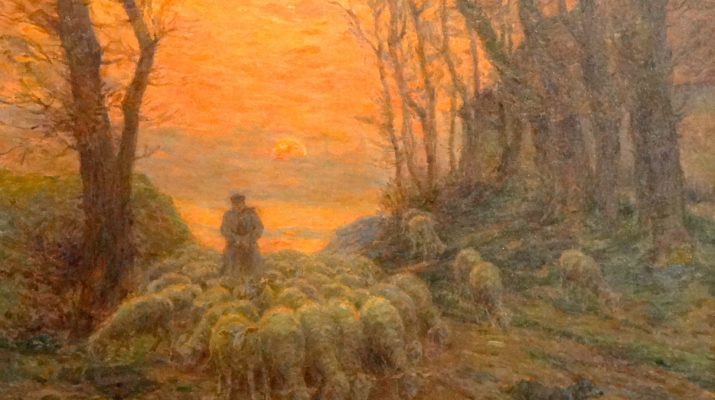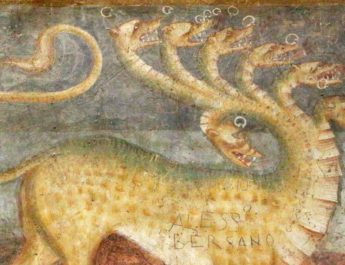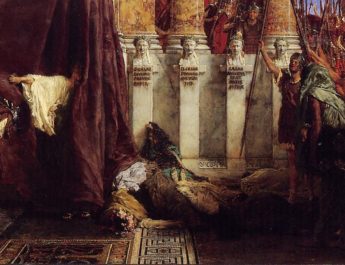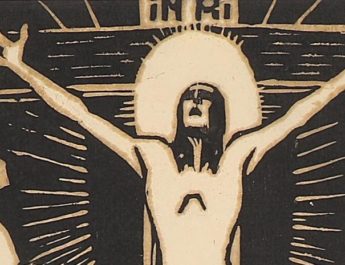Psalm 118:14-29
Eastertide C22
14 The LordA is my strengthB and my might;C
he has becomeD my salvation.E
A “Lord” = Yah. From YHVH (proper name of the God of Israel; God, Lord; the self-existent or eternal one); from havah (to become) or hayah (to be, become, happen)}. This is Lord or God – a shortened form of God’s most holy name.
B “strength” = oz. From azaz (to be strong, become fixed, be bold, prevail, be impudent; it means to be stout literally or figuratively. A Late Hebrew word). This is strength in the sense of force, majesty, praise, material and physical strength, the abstract notion of security. It can also speak of social or political power.
C “might” = zimrath. 3x in OT. From the same as zimrah (melody, psalm, or sound; sung to praise God or a song sung with an instrument); from zamar (making music; used specially of music to worship God; music with singing, singing praise, singing psalms); may be from zamar (to trim or prune). This is a song or instrumental music. It implies a song of praise.
D “become” = hayah. Related to “Lord” in v14. Se note A above.
E “salvation” = yeshuah. From yasha (to deliver, defend, help, preserve, rescue, be safe. Properly, to be open, wide or free, which implies being safe. Used causatively, it means to free). This is salvation, deliverance, health, victory, prosperity.
15 There are glad songsF of victoryG in the tentsH of the righteous:I
F “glad songs” = qol + rinnah. Qol is a sound, used often for human voices. Also used when God speaks or angels, animals or instruments. It can be a cry or a noise, thunder or earthquakes and so on. Rinnah is from ranan (a cry of joy or a joyful song; properly, emitting a shrill sound, especially one of joy). This is a song, shout, cry of joy, or proclamation. It could also be a shout of grief.
G “victory” = yeshuah. Same as “salvation” in v14. See note E above.
H “tents” = ohel. Perhaps from ahal (to shine, be clear). This is a tent, covering, home, or side pillar.
I “righteous” = tsaddiq. From the same as tsedeq (rightness, righteousness, just cause, vindication; that which is right in a natural, moral, or legal sense; abstractly equity; figuratively prosperity). This is just, innocent, righteous, righteous one, or lawful.
“The right handJ of the LordK doesL valiantly;M
16 the right hand of the LordN is exalted;O
the right hand of the LordP does valiantly.”
J “right hand” = yamin. May be from yamam (to go or choose the right, use the right hand; to be physically fit or firm). This can mean right hand, right side, or south. Since most people are right-handed, the metaphorical usage of this word presumes that the right hand is stronger and more agile. Thus, it is the instrument of power and action.
K “Lord” = YHVH. Related to “Lord” and “become” in v14. See note A above.
L “does” = asah. This is to make, do, act, appoint, become in many senses.
M “valiantly” = chayil. From chul (to be firm, strong, prosperous; to endure). This is strength, wealth, ability, activity. It can refer to soldier or a company of soldiers as well as goods. It is a force of people, means, or goods. It can speak of valor, virtue, or strength.
N “Lord” = YHVH. Same as “Lord” in v15. See note K above.
O “is exalted” = ramam. 7x in OT. This is to rise in a literal or figurative sense. So, it can be to get up or exalt.
P “Lord” = YHVH. Same as “Lord” in v15. See note K above.
17 I shall not die,Q but I shall live,R
and recountS the deedsT of the Lord.U
Q “die” = mut. This is to die in a literal or figurative sense. It can also refer to being a dead body.
R “live” = chayah. This is to live or keep alive in a literal or figurative sense. So, it an be revive, nourish, or save.
S “recount” = saphar. From sepher (writing, document, book, evidence). This is properly to tally or record something. It can be enumerate, recount, number, celebrate, or declare.
T “deeds” = maaseh. Related to “does” in v15. From asah (see note L above). This is a word – any action whether positive or negative. It can also be a transaction, construction, activity, property, or something that is produced.
U “Lord” = Yah. Same as “Lord” in v14. See note A above.
18 The LordV has punished me severely,W
but he did not give me overX to death.Y
V “Lord” = Yah. Same as “Lord” in v14. See note A above.
W “punished…severely” = yasar + yasar. This is to discipline, correct, train, teach, punish. Literally, it is disciplining with blows, but figuratively using words. The word is repeated twice – the first time as an Infinitive Absolute. The Infinitive Absolute serves to emphasize the sentiment of the word. It is rather like Foghorn Leghorn’s speech pattern, “I said, I said.”
X “give…over” = natan. This is to give, put, set, offer. It is to give literally or figuratively.
Y “death” = mavet. Related to “die” in v17. From mut (see note Q above). This can be death, deadliness, the dead, or the place where the dead go. It can be used figuratively for pestilence or ruin.
19 OpenZ to me the gatesAA of righteousness,BB
Z “open” = patach. This is to open wide in a literal or figurative sense. So, it is open, draw out, let something go free, break forth. It can also mean to plow, engrave, or carve.
AA “gates” = shaar. May be related to sha’ar (to calculate or reckon; may come from a root that means to open up or split). This is a gate, door, or other opening like a port.
BB “righteousness” = tsedeq. Related to “righteous” in v15. See note I above.
that I may enterCC through them
and give thanksDD to the Lord.EE
20 This is the gate of the Lord;FF
the righteous shall enter through it.
21 I thank you that you have answeredGG me
and have become my salvation.
CC “enter” = bo. This is to enter, come in, advance, fulfill, bring offerings, enter to worship, attack. It can also have a sexual connotation.
DD “give thanks” = yadah. From yad (hand). This is to throw one’s hands into the air in a gesture of praise. So, it is to praise, give thanks, or make a confession.
EE “Lord” = Yah. Same as “Lord” in v14. See note A above.
FF “Lord” = YHVH. Same as “Lord” in v15. See note K above.
GG “answered” = anah. This is answer, respond, announce, sing, shout, or testify. It means to pay attention, which implies responding and, by extension, starting to talk. Used in a specific sense for singing, shouting, testifying, etc.
22 The stoneHH that the buildersII rejectedJJ
has become the chiefKK cornerstone.LL
HH “stone” = eben. This is a stone, weight, or mason. It is part of the word “Ebenezer.”
II “builders” = banah. This is to build, make, set up, restore, repair, or obtain children. It is to build literally or figuratively.
JJ “rejected” = ma’as. This is to reject, refuse, despise, disdain, reject, or spurn. It can also be to disappear or melt away.
KK “chief” = rosh. This may come a word that means to shake. It is the head, captain, or chief. It can also be excellent or the forefront. It can be first in position or in statue or in time (i.e. the beginning).
LL “cornerstone” = pinnah. Perhaps from pen (corner, angle, street, wall). This is an angle, corner, cornerstone, tower, bulwark, pinnacle. Figuratively, it can be a chieftain.
23 This is the Lord’sMM doing;
it is marvelousNN in our eyes.OO
24 This is the dayPP that the LordQQ has made;RR
let us rejoiceSS and be gladTT in it.
MM “Lord’s” = YHVH. Same as “Lord” in v15. See note K above.
NN “marvelous” = pala. From pele (wonder, miracle, wonderful, marvelous thing). This is to be extraordinary, to arise, to be great or accomplish.
OO “eyes” = ayin. This is eye in a literal or figurative sense so eye, appearance, favor, or a fountain (the eye of the landscape).
PP “day” = yom. Root may mean being hot. This is the day in a literal or figurative sense. It can also mean birth, age, daylight, continually or other references to time.
QQ “Lord” = YHVH. Same as “Lord” in v15. See note K above.
RR “made” = asah. Same as “does” in v15. See note L above.
SS “rejoice” = gil. Properly, this is twirling around because of a strong feeling whether of rejoicing or from fear. This can be rejoice, be glad or joyful, or to cry.
TT “be glad” = samach. This is to rejoice or be glad. Properly, it is to brighten up in a literal or figurative sense.
25 SaveUU us,VV we beseechWW you, O Lord!XX
O Lord,YY we beseech you, give us success!ZZ, AAA
UU “save” = yasha. Related to “salvation” in v14. See note E above.
VV {untranslated} = na. Related to “beseech” in v25. See note WW below.
WW “beseech” = annah. 13x in OT– 4x for beg, beseech, entreat; 9x for Alas, O, Ah. Perhaps from ahabah (love); {from aheb (to love, beloved, friend; to have affection for sexually or otherwise)} + na (I or we pray, now; used to ask for something). This word is oh, I ask you, now.
XX “Lord” = YHVH. Same as “Lord” in v15. See note K above.
YY “Lord” = YHVH. Same as “Lord” in v15. See note K above.
ZZ “give…success” = tsalach. This is pushing forward in a literal or figurative sense. So it could be to break out, to come mightily, to rush, to go over. Figuratively, it could mean to prosper.
AAA {untranslated} = na. Same as {untranslated} in v25. See note VV above.
26 Blessed isBBB the one who comesCCC in the nameDDD of the Lord.EEE
We bless you from the houseFFF of the Lord.GGG
BBB “blessed is” = barak. This is to kneel, to bless. It is blessing God as part of worship and adoration or blessing humans to help them. It can be used as a euphemism to say curse God.
CCC “comes” = bo. Same as “enter” in v19. See note CC above.
DDD “name” = shem. May be from sum (to put, place, set). This is name, fame, renown. A name was thought to indicate something essential about a person – something about their individuality. So, this word can also mean honor, authority, or character.
EEE “Lord” = YHVH. Same as “Lord” in v15. See note K above.
FFF “house” = bayit. Related to “builders” in v22. Probably from banah (see note II above). This is house, court, family, palace, temple.
GGG “Lord” = YHVH. Same as “Lord” in v15. See note K above.
27 The LordHHH is God,III
and he has given us light.JJJ
BindKKK the festal processionLLL with branches,MMM
up to the hornsNNN of the altar.OOO
HHH “Lord” = YHVH. Same as “Lord” in v15. See note K above.
III “God” = El.
JJJ “given…light” = or. From or (to be or become light). This is light, sun, sunshine, dawn, or daylight. Figuratively, it can refer to light from instruction, light of a face (that is to say one that is cheerful or finds favor). It can refer to prosperity or salvation; a light that guides, a light eternal from Zion.
KKK “bind” = asar. This is to tie, yoke, bind, or fasten. It can mean to harness an animal, to join in fighting a battle, or to imprison someone.
LLL “festal procession” = chag. From chagag (feast, celebrating a festival, making a pilgrimage; properly, going in a circle or marching in sacred procession; implies giddiness and dancing; reeling to and fro). This is a feast, a sacrifice as part of a festival, or the gathering of the festival.
MMM “branches” = aboth. From abath (to weave, wind, or interlace). This is a cord, string, band, wreath, branch, or foliage.
NNN “horns” = qeren. This is horn or hill. It can be a flask or cornet, ivory, altar corner, mountain peak, or figuratively power.
OOO “altar” = mizbeach. From zabach (to kill, slay, offer; slaughtering an animal to offer as a sacrifice). This is an altar.
28 You are my God, and I will give thanks to you;
you are my God,PPP I will extolQQQ you.
29 O give thanks to the Lord,RRR for he is good,SSS
for his steadfast loveTTT endures forever.UUU
PPP “God” = Elohim. Related to “God” in v27. See note III above.
QQQ “extol” = rum. This is to rise or raise, to be high literally or figuratively. So it can also mean to exalt or extol.
RRR “Lord” = YHVH. Same as “Lord” in v15. See note K above.
SSS “good” = tob. From tob (to be pleasing, to be good). This is good, beautiful, pleasant, agreeable, bountiful, at ease. This word is used for goodness as a concept, a good thing, a good person. This can refer to prosperity and welfare as well as joy, kindness, sweetness, and graciousness. So, this is ethically good, but also enjoyably good.
TTT “steadfast love” = chesed. From chasad (being good, kind, merciful; may mean bowing one’s neck as is done in the presence of an equal for courtesy’s sake; so, if one in a superior position is treating you like an equal, that is what is captured here). This is favor, goodness, kindness, loving kindness, pity, reproach, or a good deed. When done by God to humanity, this is mercy/loving kindness. When done by humanity to God, it is piety.
UUU “forever” = olam. This is a long scope of time whether in the past (antiquity, ancient time) or in the future (eternal, everlasting).
Image credit: “Return of the Shepherd” by Henri Duhem, late 19th century.




